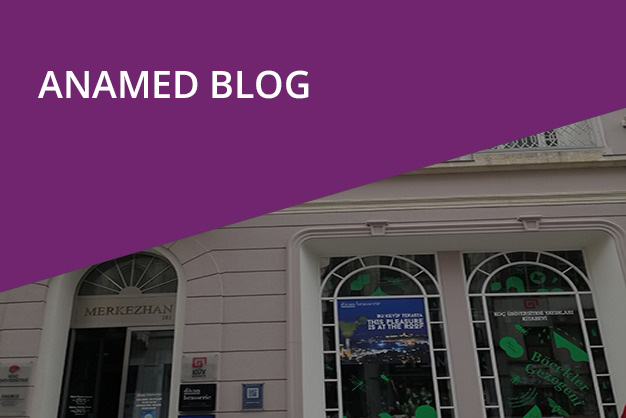
Academic Life in Times of Cholera
Nothing beside remains. Round the decay
Of that colossal wreck, boundless and bare,
The lone and level sands stretch far away.
In September 2019, GABAM, ANAMED, and Koç University gave me a nine-month fellowship, my first post-doctoral fellowship. They gave me the privilege to do what I was looking for: research, study, and work on the incredible Syriac cultural heritage of Tur ‘Abdin in southeastern Turkey; the privilege to work in one of the most incredible countries in the world, in what is, I think, the most fascinating city of the planet. After the academic suffering of my PhD, I was finally able to work in the place I love the most, Istanbul.
I was already happy for that, and then I discovered that ANAMED was also the workplace that every scholar dreams of, hosting 24 researchers from all around the world, who were not only brilliant, but also—each one of them—fantastic human beings.
For all these reasons, it was with a broken heart I decided to leave Istanbul earlier than planned to join my family and relatives in Switzerland because of the COVID-19 outbreak. Istanbul is that kind of city where you cry twice: when you arrive, astonished by the 2000 year-old city and its people, and when you leave, because you are not sure you will be able to come back. I was lucky enough in my life to cry 16 times in total, and I hope I will do it again more and more.
On March 17, I left a city which was starting to self-quarantine, and I landed in Geneva, which was already under quarantine but where nobody respected the actions decided by the government. At the Geneva airport, we were asked to take a bus more crowded than an Istanbul bus. My first thought was “Please, let me go back immediately to Istanbul. I prefer to get the COVID-19 in a beloved place…” Unfortunately, there were no more flights to Turkey.
Actually, I cannot complain. Switzerland was not hit too much by the outbreak. We were never strictly in quarantine, and on May 11 the bars and restaurants opened again. The only inconvenience I had during these freaky times was what I am now used to calling the “COVID depression.”
Being at home, with everything closed around me, receiving emails every day to announce conference cancellations, put me in a sort of strange 19th-century melancholy. I was healthy, able physically to work from home, but it was impossible for at least a month to do anything. I realized then that a scholar’s life is one of the most solitary lives. And for that reason, after a few hours working alone on my ruined Syriac churches, contact with other human beings was absolutely necessary. At ANAMED, this interaction with other people, other scholars, was not only an appreciated interruption of my lonely work, but also an occasion for exchange about what we were doing, improving the perception and the understanding of my own research. If I missed something during this strange period, it was that incredible atmosphere of intellectual exaltation that ANAMED created.
But, unlike in Percy Bysshe Shelley’s verses quoted in the beginning of this short text, something beside remains: the links and friendships created during this too short period at ANAMED, and I am sure we will meet again, for discussions, conferences, exchanges, or even some beers at a nearby meyhane.
—Alexandre Varela, GABAM-ANAMED Joint Post-Doctoral Fellow, 17 June 2020

